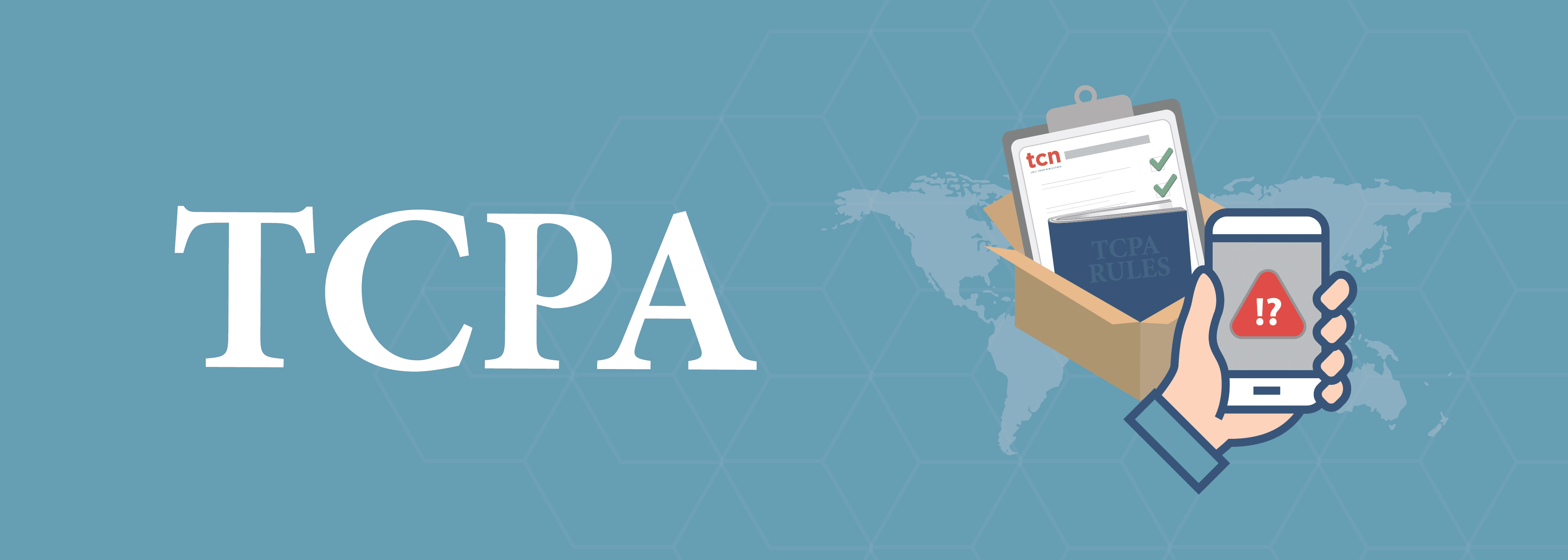Simple Tactics for TCPA Compliance
Violating the TCPA is a recurring nightmare for most call center managers.
Every day, managers grapple with multiple vulnerability points while Congress continues to add shockingly high fines and restrictions.
And most federal courts rule against call centers’ innovative attempts to remain compliant.
So to say TCPA compliance is a manager’s top priority is an understatement.
But managers who try to take on this challenge by themselves face inevitable defeat.
Fortunately, managers can rely on cloud contact center software to implement simple tactics for TCPA Compliance. We promise these tactics can shield their call center against most TCPA threats – minimizing vulnerabilities to almost zero.
Let’s jump in…
But First: How Did We Get Here? – a Brief History of TCPA
In 1991, The U.S. Congress passed the Telephone Consumer Protection Act (TCPA) to protect consumers from unwanted calls. Congress passed TCPA as a response to an exponentially outbound call increase.
Breakthroughs in outbound technology contributed to this call center boom.
Congress continued to strengthen TCPA over the years. In 2003, the FTC created The National Do Not Call Registry with Congress’ blessing, establishing a list of families and individuals who told telemarketers to leave them alone.
Most recently, President Trump signed the TRACED Act into law, creating the most restrictive regulations (and expensive fines) on robocallers ever.
Now we don’t know what comes next. But call centers as a whole need to prepare for the worst. Here’s what managers can do right now to protect themselves…
Repeat This Over and Over Again – “Obtain Written Consent”
Training agents to obtain written consent from every customer is one of the best ways to maintain TCPA compliance. They need customer permission to make any telemarketing calls about an offer. Deploying an automatic dialer for similar calls requires consent.
Logically, it makes sense. Executives and managers with a long-term outlook know customers respect companies who do this. Transparency and consent are critical ingredients in delivering remarkable service. And the sooner companies obtain consent, the better.
So many TCPA court cases and fines revolve around call center representatives neglecting to acquire consent, making unauthorized calls to consumers.
The good news is the FCC allows electronic or digital signatures. Capture customer consent through website forms, text messages, and telephone-key press. Agents just need to make sure they’re dialing a number connected with the name of the person who provided written consent.
Call Recording and Transcription: A Manager’s Ace in the Hole
Managers of yesteryear would dream about recording and transcribing every agent-customer conversation. With cloud contact software technology, now it’s a reality – and a prerequisite for TCPA compliance.
Call recording and transcribing provides managers with the raw material they need to train agents on the legally correct way to talk to customers. Did an agent make a mistake? Managers can search for specific phrases, keywords, and more to pinpoint the conversation.
There are other benefits, too. Is the FCC coming after a call center over consent disputes? Is the call center having trouble finding written consent documents?
If so, discovering a verbal consent from the particular conversation in question can mean the difference between a call center living or dying. Now that’s insurance every call center needs.
More Ways to Save Your Call Center From Catastrophe Catastrophe
We all know outbound call campaigns are the lifeblood of many call centers. But there are many boxes to check before executing a successful campaign. Here are some tips for maintaining TCPA compliance:
- Do not call residential phones before 8 a.m. or after 9 p.m. local time.
- Exclude all residential numbers on the call center’s in-house do-not-call list and The National Do-Not-Call List
- Always have agents disclose their name, what company they represent, and a phone number or address customers can reach them.
- Never use an automatic telephone dialing system (ATDS) when contacting a cell phone number unless the customer provided express written consent. Placing a call to a cell phone is better using a manual dial system carried out by a human being.
While these TCPA compliance tactics offer increased protection and safety, there’s still more managers can do.
Want in on more TCPA compliance best practices? Check out our Complete Guide to TCPA Compliance.
Use This Skelton Key to Unlock the Door to TCPA Compliance Mastery
While TCPA Compliance is every call center stakeholder’s responsibility, compliance leadership starts at the top.
Managers can’t just let cloud contact center software do the work for them. They need to know these laws inside and out.
Because how can a top-level manager expect their agents to comply if they are TCPA ignorant?
Not to mention other burdensome regulations intertwined with TCPA?
Thankfully, TCN has managers’ backs.
We put together “A Manager’s Guide to Call Center Regulations,” entirely free for managers who want to take TCPA compliance by the reins.
Take the next step to TCPA compliance mastery by downloading the free guide today.
